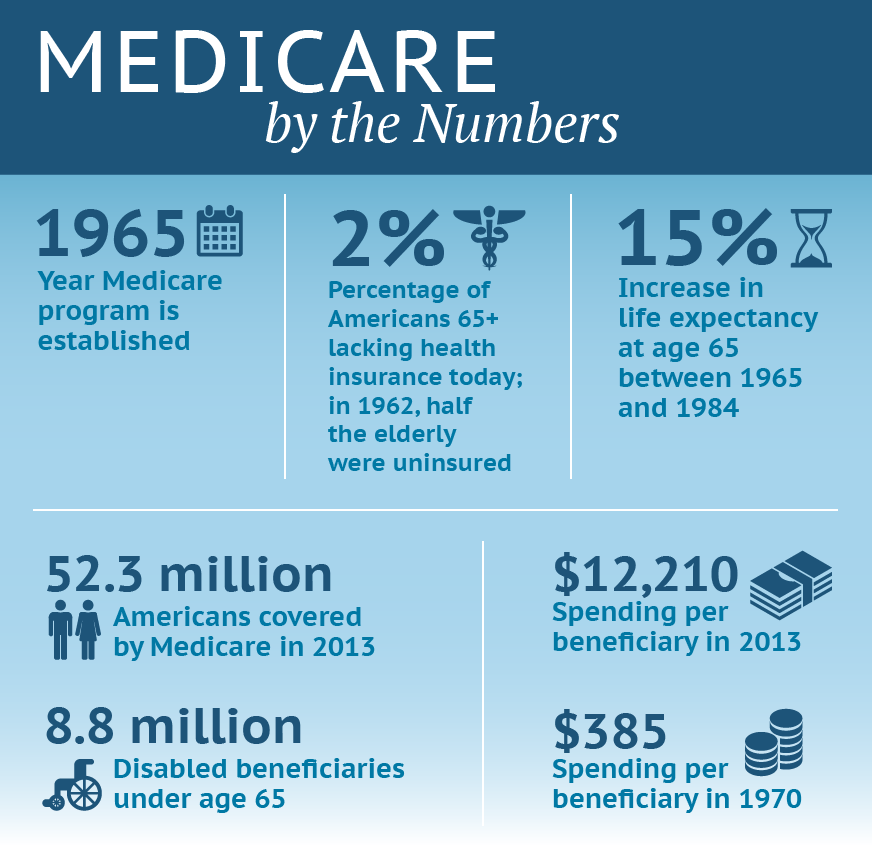On July 30, 1965, almost 50 years ago, Congress enacted Medicare to ensure that older adults had health insurance. Back then, almost half of Americans over 65 were uninsured, either no insurer was willing to cover them or the available insurance was unaffordable. Medicare offered them access to quality affordable health care. Medicare was designed to work—offering essentially automatic coverage for anyone who turned 65, deducting the premium from their Social Security check, and affording them access to doctors and hospitals anywhere in the United States. Medicare did not have a cap on out-of-pocket costs, nor did it cover long-term care or prescription drugs. But, health care costs were far lower then.
Thanks to Medicare, today just 2 percent of older adults lack health insurance coverage, while in 1962 48 percent of them lacked coverage. And, Americans’ life expectancy has increased significantly. Moreover, people with Medicare tend to rate it more highly than private insurance. According to the Commonwealth Fund, “people with Medicare indicate they are less likely to have problems getting needed care and to have burdensome medical bills and negative insurance experiences.”
Medicare today is in the forefront of insurers driving health care innovations throughout the health care system. Private insurers tend to keep their innovations confidential. Medicare therefore takes the lead in ensuring systemic improvements. According to the Commonwealth Fund, it is “developing models to promote high-quality, evidence-based care and reducing incentives to provide more services, regardless of their value to patients.” Could Medicare be stronger and better still? Of course. But, is it able to deliver better value than private insurance, in terms of cost and the ability to promote a better health care system? You bet. Check out this infographic on Medicare’s origins.








